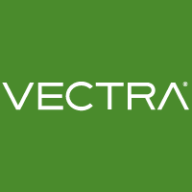

Vectra AI and SentinelOne Singularity Complete are competitive solutions in the cybersecurity realm. While Vectra AI excels in support and pricing, SentinelOne's comprehensive feature set makes it a worthy choice, offering substantial investment returns for users.
Features: Vectra AI is noted for advanced anomaly detection, seamless integration with existing systems, and its AI-driven insights. SentinelOne offers comprehensive threat intelligence, autonomous response capabilities, and a wide range of security features that help it stand out in the market.
Room for Improvement: Vectra AI has room to enhance scalability, introduce more customization options, and streamline the user interface. SentinelOne could work on improving alert management, reducing system resource usage, and enhancing its reporting functionalities.
Ease of Deployment and Customer Service: Vectra AI is praised for straightforward deployment and responsive support, making it an attractive option for those seeking strong service engagement. SentinelOne provides quick installation but could improve customer service responsiveness to better meet user needs.
Pricing and ROI: Vectra AI is perceived as cost-effective, offering a steady ROI for users. SentinelOne, while having a higher initial setup cost, offers a substantial long-term ROI due to its robust features, with users willing to pay a premium for its extended capabilities.
SentinelOne Singularity Complete has helped reduce my organization's mean time to detect by fifty percent.
Since then, I have not faced any intrusions, which is one reason I chose SentinelOne over ESET.
We have not faced any attacks since we implemented it.
The payback period is roughly six months.
We are using the automated email process for support, and they respond within an hour or two hours sometimes.
A chat service would be beneficial.
The technical support from SentinelOne Singularity Complete is very active and good, with a strong knowledge base available online.
The support is quite reliable depending on the service engineer assigned.
When I create tickets, the response is fast, and issues are solved promptly.
Customer support receives a rating of nine out of ten due to being very supportive and responding quite efficiently.
It's all auto-scale and auto-categorized, configuring automatically.
SentinelOne Singularity Complete is very scalable.
My deployment is relatively small, and SentinelOne Singularity Complete works within those constraints.
Vectra AI is scalable because it can work through different kinds of solutions and is compatible with all kinds of cloud solutions.
This indicates room for improvement in stability when interacting with other solutions.
Initially, there were issues, particularly on the management side, but now the console is much more stable.
Everything is managed automatically, so there is no user interference needed for upgrades.
The only thing that prevented the attack from succeeding was a free version of Malwarebytes.
Providing a single pane of visibility for the end user would be beneficial.
That seems to play a little havoc and can conflict with manual installs, causing issues where it wants to delete and reinstall the client.
ExtraHop's ability to decrypt encrypted data is a feature that Vectra AI lacks.
You need to have a Linux server, and from the Linux server, you must perform AI tasks, and there is a lot to be handled in the back end.
All threats, including hacking attempts, should be comprehensively addressed.
If you want protection, you have to pay the price.
There are other products that are less expensive, but I tell my clients that in security, they cannot cut corners or look for the cheapest solution.
Reputation and quality are important, but especially in today’s economy, price is a significant factor.
Vectra is cheaper in terms of pricing and features compared to Darktrace.
It is very acceptable when you compare it with Darktrace, for example.
I have an advanced app providing visibility of all my endpoints, which was not the case before.
SentinelOne has a feature to decommission automatically, which has been fantastic.
There's also automation that gives my team free time, preventing them from having to look for every alert.
Our company used Vectra AI to detect the malicious threats and viruses before they could cause more damage, and we successfully stopped the threats.
Alert noise was dramatically reduced by nearly 80%, allowing SOC analysts to focus more on true threats, which made them more productive and resulted in higher operational efficiency.
There are extensive out-of-box detection capabilities.
| Product | Market Share (%) |
|---|---|
| SentinelOne Singularity Complete | 5.8% |
| Vectra AI | 3.0% |
| Other | 91.2% |

| Company Size | Count |
|---|---|
| Small Business | 87 |
| Midsize Enterprise | 44 |
| Large Enterprise | 76 |
| Company Size | Count |
|---|---|
| Small Business | 9 |
| Midsize Enterprise | 10 |
| Large Enterprise | 29 |
SentinelOne Singularity Complete delivers advanced endpoint protection leveraging AI-driven threat detection and behavior analysis for efficient malware and ransomware response. Its standout features enhance security insights and ensure comprehensive endpoint management.
SentinelOne Singularity Complete provides robust ransomware recovery through unique rollback capabilities and seamless integration with various security solutions. Its machine learning enhances endpoint protection, minimizing false positives and automating responses. While praised for real-time threat monitoring, incident management, and asset management, it faces challenges in managing the console, customizing UI, and maintaining policy flexibility. Some users report difficulties with deployment and integration with existing systems, and enhanced reporting, alert management, and documentation are desired. Its appeal extends to deploying across multiple operating systems, offering comprehensive security coverage and facilitating cybersecurity compliance.
What standout features does SentinelOne Singularity Complete offer?Industries implement SentinelOne Singularity Complete for its AI capabilities in advanced endpoint protection, particularly against malware and ransomware. It's utilized across diverse operating systems, aiding in real-time threat monitoring and facilitating compliance. Organizations use it for vulnerability assessments and asset management, ensuring optimal protection in complex IT environments.
Vectra AI offers advanced hybrid network and identity security, detecting threats traditional tools miss. It uses AI to identify lateral attacks and credential misuse, providing a proactive defense for enterprises.
Vectra AI enhances security by using AI-driven detection across network, cloud, and identity layers, surpassing EDR and SIEMs by offering real-time threat detection. It ensures continuous observability and automates SOC workflows to minimize manual efforts, creating an efficient security environment. Its AI-powered approach significantly reduces noise, focusing on true threats, and provides insights into complex threat landscapes, with seamless integration into environments like EDR and Office 365.
What are Vectra AI's key features?Vectra AI is utilized across industries for comprehensive network and anomaly detection. Organizations deploy it for threat hunting and incident response, monitoring both on-premises and cloud activities. By placing sensors across sites, they optimize security practices and streamline their detection processes.
We monitor all Extended Detection and Response (XDR) reviews to prevent fraudulent reviews and keep review quality high. We do not post reviews by company employees or direct competitors. We validate each review for authenticity via cross-reference with LinkedIn, and personal follow-up with the reviewer when necessary.